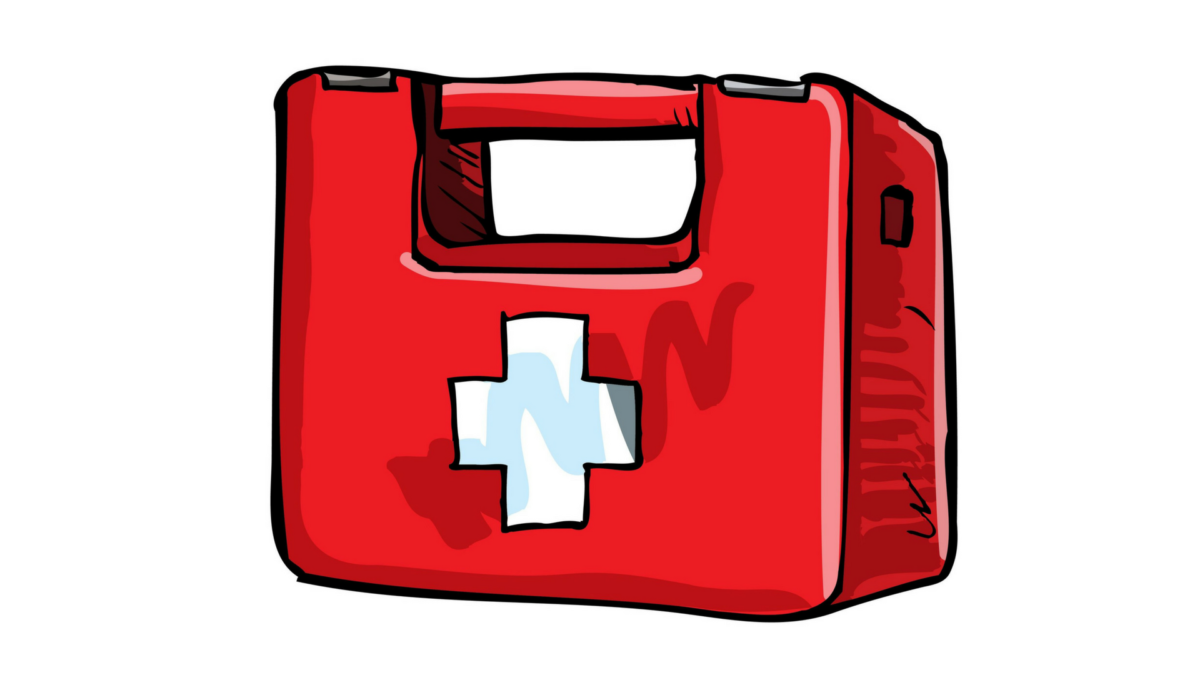Emergency Kit For Your Loved One Who’s In A Long-Term Care Home

It’s only one week until Mandy’s mom moves into a long-term care home. Sending her mom to a long-term care community is a huge relief for Mandy, since she is moving to another state with her fiancé. However, it is not without any worry – Mandy’s mom has some physical impairments and Mandy is afraid that caregivers won’t be able to offer the best help exactly when she needs it, so she decided to build an emergency kit for her mom on her own.
Whether you are taking care of an elderly person at home or in a long-term care community, a first aid kit is one of the necessary items that you never want to miss. Seniors are more likely to be injured than younger people, since they may have less strength and flexibility, and a higher risk for fracture. Also, their sight, hearing, smell and taste may have declined, making them more vulnerable to accidents. At the same time, seniors are more susceptible to skin infections and diseases. Aging can make the skin less elastic, thinner, and drier, which makes injuries takes longer for them to heal.
Buying an emergency kit is convenient, but customizing your own emergency kit will be suitable for your loved one in a long run. In that, we are going to provide you with some tips and a checklist of what you can add into your emergency kit. Let’s get started.
Tips for Preparing an Emergency Kit for Your Loved One
1. Assess Your Loved One’s Health Condition
As we mentioned many times in our past blog posts, the premise of meeting your loved one’s needs is to understand their needs. So, the very first thing you should do is ist all the concerns that your loved one may have, and medicine or any other aiding items that can help them cope with their situation.
Consider your loved one’s mobility condition, hearing and vision status, and also ask the doctor if it is necessary to stock up on certain items according to his or her health condition (some doctors are willing to give you extra amounts of some certain medications, but it depends on the disease and the person). Assessing your loved one’s health condition makes it much easier for you to build a perfectly customized emergency kit. Also, if your loved one has memory problems or cognitive issues, it is not too late to add the things that could comfort them.
2. Know the Drug Regulation of the Long-Term Care Home
Building an emergency kit isn’t about bringing whatever you want; there are laws that restrict medications in long term care home, according to the provinces or states. Inproper usage of emergehcy kits, especially medication, can result in serious consequences for the long-term care home, so it is vital to figure what can be added and what should be avoided in a fist aid kid that your loved one will bring to a community. Here is an example list of what is allowed in long-term care homes, according to the Arkansas State Board of Pharmacy:
-
Analgesics, controlled drugs
-
Anti-Infectives
-
Anticholinergics
-
Anticoagulants
-
Antidiarrheals
-
Antihistamine Injectables
-
Antinauseants
-
Antipsychotics
-
Anti-Hyperglycemic
-
Anxiolytics
-
Cardiac Life Support Medications
-
Coagulants
-
Corticosteroids
-
Hypoglycemics
-
Seizure Control Medications
-
Large Volume Parenterals
-
Poison Control
-
Respiratory Medications
-
GI Medications
-
Other Medications as Approved by the Board
3. Make It As Light As Possible
Moving into a long-term care home is already a big project for most seniors. You don’t want to add extra pressure to your loved one to carry a big heavy box around. So, make a list of necessary items, and get rid of, or just leave the extra items in your loved one’s room. Below, we offer you a checklist of what you can include in an emergency kit.
What You Can Add Into A Customized Emergency Kit
Basic Sanitation and Cleaning
-
Antiseptic Wipes
-
Hydrogen Peroxide
-
Antibiotic Ointment (e.g., Neosporin.)
-
Aloe Vera (to heal burn)
-
Hand Sanitizer
-
Eye Drops
Wound Dressings
-
Band-Aida
-
Non-Adhesive Pads
-
Tape
Medicinal
-
Personal prescription and over the counter medication
-
Ibuprofen, Tylenol, aspirin, Benadryl, or other painkillers
-
Antidiarrheal medication and laxatives
-
Antacids such as tums.
-
A printed list of your loved one’s known medical conditions, their prescribed dosage, and allergies.
Essential Tools
-
Thermometers
-
Tweezers
-
Scissors
-
Fingernail Clippers
-
Blankets
-
Medicine Cups or Spoons For Measurements
-
Cotton Balls and Swabs
-
Floss
-
Roll of Duct Tape
-
Small Plastic Bags
Others
-
Sunscreen
-
Insect Repellent
-
Instant Cold Ice Packs
-
Items That Accommodate Tour Loved One’s Specific Needs
Takeaway
The above list is only a general guide for your customized first aid kit; what you will actually add to your list depends on what your loved one’s needs. Remember to know your loved one’s needs and list them before your preparation, and ask if the home allows you to bring some medication that you are uncertain about.
Happy prepping!
References:
https://seniorsafetyadvice.com/how-to-build-an-emergency-kit-for-seniors/
https://www.pharmacyboard.arkansas.gov/wp-content/uploads/2020/04/EmergencyKitsLTC.pdf


